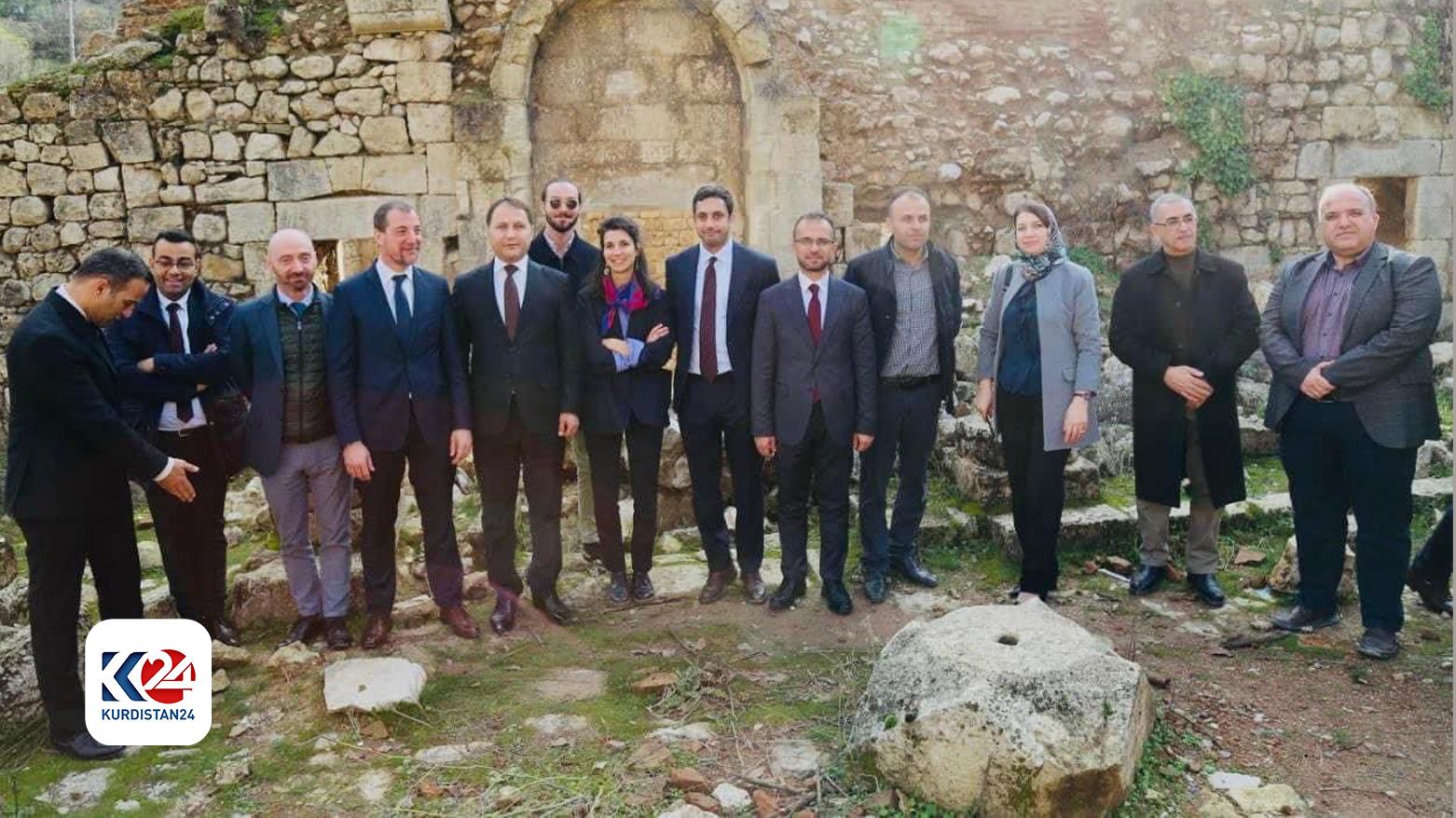Six ancient monuments in Amedi to be restored

ERBIL (Kurdistan 24) – The French Consulate in Erbil on Wednesday announced that it is restoring six ancient monuments in the Amedi district of the Kurdistan Region.
The project is to be overseen with the coordination of two foreign companies and the Kurdistan Regional Government (KRG) Ministry of Municipalities and Tourism, as confirmed by Duhok Province’s Antiques and Heritage Director, Bekas Brifkani.
"The restoration of the monuments will start early next year, including the Qobahan School, the Minaret of the Great Mosque in Amedi, the Chaldean Church, Sultan's Cemetery, Pirhazan's Shrine, and Kura Sriji," Brifkani noted and added, "Research has been conducted on these sites for seven months.”
There are more than 2,221 archaeological sites in Duhok province, with most of them being located in the Amedi district.
In May 2022, German and Kurdish archaeologists revealed their findings in their examination of a 3,400-year-old Mitanni Empire-era city three kilometers from Duhok Province's Sumel District.
Read More: A 3,400-year-old city resurfaces from the Tigris River in the Kurdistan Region
Most Kurdish archaeological sites are believed to be ruins from the ancient Assyrian, Babylonian, and Sumerian civilizations, among others. The region is also home to many ancient cave dwellings, most notably the Shanidar Cave in the Barzan District of Erbil.
Editing by Dastan Muwaffaq

.jpeg)
